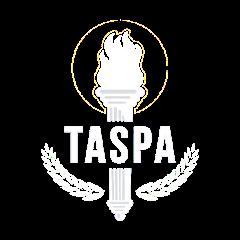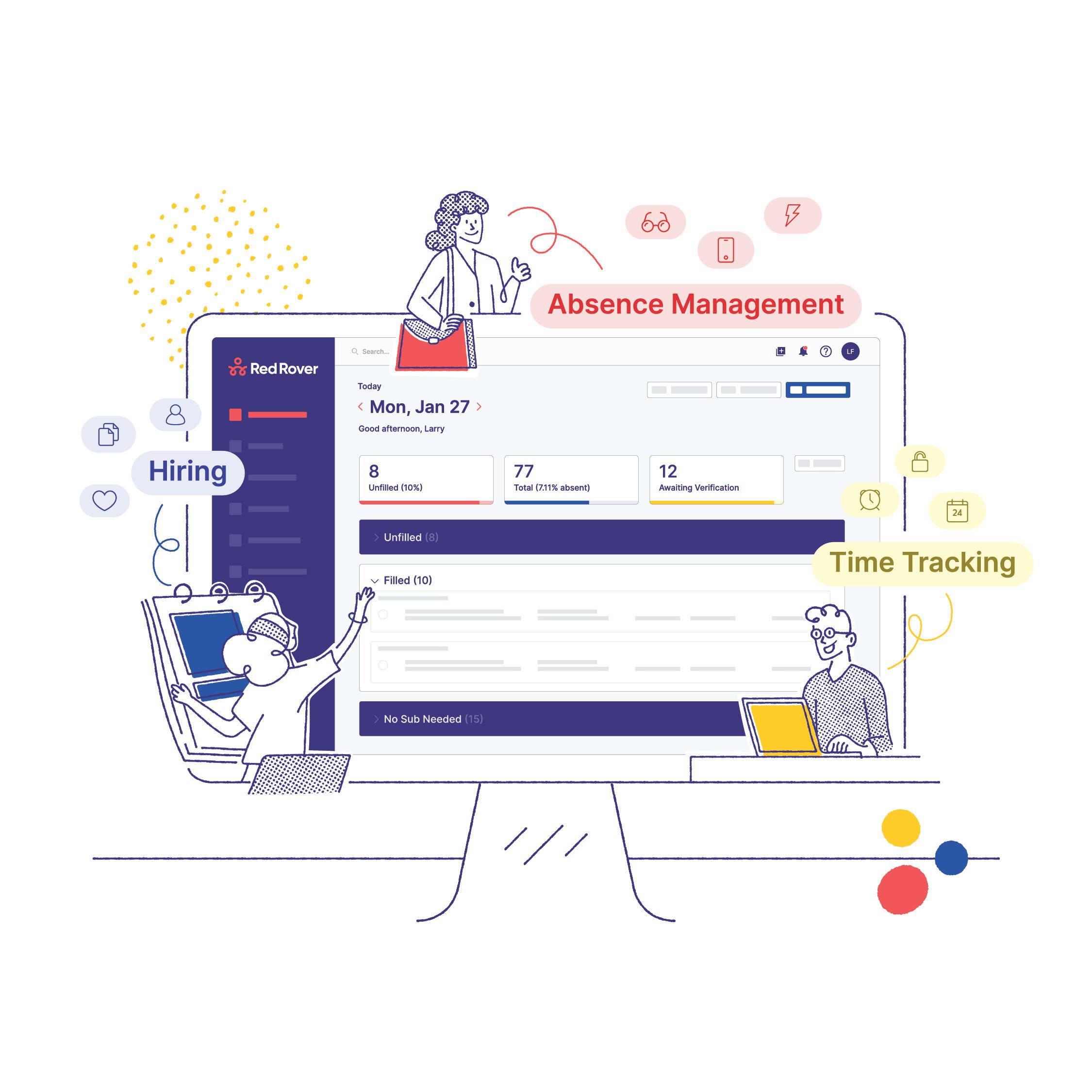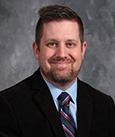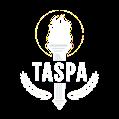




TeacherFinder is an innovative tool designed for school districts to simplify the search for qualified teacher candidates and to monitor their progress within the iteach program.


• Seamless Navigation: Browse a pool of over 1,000 high-quality candidates based on location and certification areas.
• Customizable Searches: Save your search preferences for quick access to your favorite candidates.
• Track Progress: Keep tabs on candidates hired under an Intern Certificate, DOI waiver, or emergency provisions. Stay updated on their progress toward their certificate.
• Proactive Recruitment: Save time and resources by taking a proactive approach to finding and hiring the best talent for your school community
• Direct Email Contact: Reach out to your ideal candidates with just a click, streamlining the recruitment process.
Don’t let the search for quality educators become a daunting task. Over 100 districts are already benefiting from the streamlined and efficient recruitment process offered by TeacherFinder.

CHANDELLE CRANE, Executive Director
KATHY CERVANTEZ , Associate Executive Director, Partnerships & Programs
BRYCE CRANE , Marketing Coordinator
KYLIE CERVANTEZ , Membership Coordinator
JOHJANIA NÁJERA , President, Keller ISD
CHRIS BAILEY , President Elect, Abilene ISD
CRAIG LAHRMAN , First Vice President, Ysleta ISD
BEN MUIR , Second Vice President, Northside ISD
DR. TAMEY WILLIAMS-HILL , Secretary, Manor ISD
KIMBERLY RICH , Immediate Past President, Dickinson ISD
ANTHONY KOSUB , District I, Pleasanton ISD
DR. TYRONE SYLVESTER , District II, Harris County Department of Public Education
EDDIE CURRAN , District III, Round Rock ISD
THERESA BURKHALTER , District IV, Waxahachie ISD
RODNEY CADDELL , District V, Levelland ISD
JOSE BARRAZA , District VI, Canutillo ISD
BRIAN KROEGER , District II, Livingston ISD
MAX FLORES , District I, New Braunfels ISD
BRIAN KROEGER , District II, Livingston ISD (Board Liaison)
DR. RONNITA CARRADINE , District III, Waco ISD
JASON LIEWEHR , District IV, Denton ISD
ROBIN FAWCETT , District V, Ector County ISD
BOBBI RUSSELL-GARCIA , District VI, Ysleta ISD
DIANA SILVAS , District I, Robstown ISD
CYNDY PULLEN , District II, Angleton ISD
AMELIE SANCHEZ , District III, Round Rock ISD
GREG GASTON , District IV, Plano ISD
PAUL KIMBROUGH , District V, Canyon ISD
JIOVANA GUTIERREZ , District VI, Ysleta ISD
RITA URESTI , District I, South San Antonio ISD
MARCUS HIGGS , District II, Texas City ISD
TBD , District III
DR. SANDRA MOORE, District IV, ESC Region 10
PAIGE ANDERSON , District V, Amarillo ISD (Committee Chair)
CELINA STILES , District VI, Socorro ISD
**Includes President, President-Elect & District Representatives
DR. DESTINY BARRERA , District I, Judson ISD
DR. NKRUMAH DIXON , District II, Huntsville ISD
MICHELLE ROCHA , District III, Manor ISD
NORMA SALAZAR , District IV, Waxahachie ISD
DAVID MANCHEE , District V, Amarillo ISD
FERNANDO GARNICA , District VI, Anthony ISD


As we open the 2025-2026 school year, I want to recognize the incredible strength it takes to lead during times like these. In the face of growing challenges in Texas public education — from staffing shortages to shifting policies, from those that many times lose sight of the children we are called to educate — our commitment to serving students, supporting staff, and upholding what is right has never been more critical.
Remember, we are the heartbeat of our districts, ensuring that every classroom has a teacher, every school has support, and every student has a chance. Our work is quiet but powerful, and it changes lives every single day.
Let this great organization (TASPA) remind us that we are not alone and that it is greener after the storm. But we do have to weather the storm and not lose hope or give up on the challenging work ahead - the future of public education in Texas depends on us.
Thank you for showing up, for standing firm, and for leading with heart.


The workshop discount is contingent upon the referred individual's successful membership enrollment with TASPA. Applies to new Professional members only.

DATE EVENT
August 19, 2025
September 4, 2025
September 17, 2025
September 25, 2025
September 25, 2025
October 2, 2025
LOCATION
Qualifying A Special Education Teacher ESC Region 20
Certification Essentials ESC Region 20
Qualifying A Special Education Teacher Ysleta ISD
Certification Essentials Spring ISD
Maintaining Service Records Spring ISD
Qualifying A Special Education Teacher Terrell ISD
October 7-10, 2025 AASPA Nashville, TN
October 13-14, 2025
November 10, 2025
November 13, 2025
December 2, 2025
December 10, 2025
TASB HR Academy TASB Headquarters, Austin, TX
Documentation Basics Chapel Hill ISD (Tyler)
Certification Essentials Hutto ISD
Documentation Basics ESC Region 20
Personnel Law Conference The Worthington Renaissance Hotel Fort Worth, TX
December 11-12, 2025 TASPA Winter Conference
February 10, 2026
February 10, 2026
February 26, 2026
May 7, 2026
The Worthington Renaissance Hotel Fort Worth, TX
Certification Essentials Terrell ISD
Maintaining Service Records Terrell ISD
Personnel Skills for Supervisors of Auxiliary Staff ESC Region 20
Maintaining Service Records ESC Region 20
NAME JOB TITLE DISTRICT
Ellen Akers Director EE Health/Wellness Goose Creek CISD
Sundal Ali Executive Director HR Manor ISD
Martha Andrade Benefits Specialist Terrell ISD
Mollie Avelino Executive Director of Human Resources Lake Dallas ISD
Ashley Barker Compensation Analyst Harris County Department of Education
Kayleen Behrens HR Manager Charter School Success
Julie Boatwright Coordinator for Human Resources Killeen ISD
Stephanie Booker HR Coordinator Beaumont ISD
Windy Burnett HR Coordinator Bastrop ISD
Kimberly Byers MD of HR Services IDEA Public Schools
Patty Cerda HR Support Hays CISD
Shanee Charles Human Resources Recruitment Coordinator Lancaster ISD
Todd Coleman HR Director North East ISD
Jennifer Cooper Director of Human Resources Wimberley ISD
Teresa De Alba Director-Talent Cleveland ISD
Shawn Duhon Deputy Superintendent Sulphur Springs ISD
Kendra Estes Manager, Risk Resources TASB
Jennifer Farmer Director of Talent Acquisition and Apprenticeship Brazosport ISD
Abraham Gallegos Executive Director, HR Vanguard Academy
Belinda Gamez Director of Human Resource West Oso ISD
Tara Garcia HR Sub Specialist Terrell ISD
Arely Gonzalez HR Hiring Specialist Del Valle ISD
Enrique Herrera Assistant Superintendent for Administrative Services Socorro ISD
Denise HookerWare Director of Quality Assurance IDEA Public Schools
Geneva Jones Founding Partner
Geneva Jones & Associates, PLLC
Addison Kraus Director of Human Resources Seguin ISD
Tara Lancaster Executive Assistant Round Rock ISD
Mariza Longoria HR Clerk Alief ISD
Brenda Lozano Director of SPED Banquete ISD
Cheryl Lujan HR Specialist Kemp ISD
Deanna Martinez HR Clerk Gonzales ISD
Christine Mayers HR Coordinator Killeen ISD
Amber McCormick HR Coordinator Angleton ISD
Henva Medlow Director of Leadership Development Lamar CISD
Kevin Meyer HR Coordinator Conroe ISD
Kevin Miles HR Hiring Specialist Del Valle ISD
Heather Miller Director of Administrative Services Moody Early Childhood Center
Chelsea Nelson HR Administrative Assistant Lamar CISD
Laura Nichols Residency Coordinator Cypress-Fairbanks ISD
Jeremy Nueman Chief Human Resources Officer Seguin ISD
Kelsey Picou Director of Human Resources and Communications Ingleside ISD
Carmen Reynoso Human Resource Clerk II Vanguard Academy
Eden Saenz-Pulido HR Admin Assistant Hereford ISD
Guadalupe Sanchez Human Resource Director Hidalgo ISD
Gustavo Sanchez Human Resource Director Hidalgo ISD
Tricia Thacker Human Talent Coordinator Tomball ISD
Donna Trevino Jones Assistant Director Employee Relations Round Rock ISD
Travis Utecht Executive Director of Human Resources Willis ISD
Sarah Whitton HR Coordinator Pecos-Barstow-Toyah ISD
Kevin Wrobleski Associate Director for Compensation Goose Creek CISD

Anthony Kosub, District I Representative
SAAPA Meetings:
• September 11, 2025
Dr. Tyrone Sylvester, District II Representative
GCASPA Meetings:
• October 24, 2025
Eddie Curran, District III Representative
CTASPA Meetings:
• October 7, 2025
• November 4, 2025
• January 20, 2026
• February 10, 2026
• May 12, 2026
Theresa Burkhalter, District IV Representative
NCTASPA Meetings:
• TBD
Rodney Caddell, District V Representative
WTASPA Meetings:
• October 29, 2025
Jose Barraza, District VI Representative
Par 19 Meetings:
• August 28, 2025
• September 26, 2025
• October 24, 2025
• November 14, 2025
• December 17, 2025
• January 16, 2026
• February 19, 2026
• March 2026 (TBD)
• April 22, 2026
• May 2026 (TBD)
• June 18, 2026








Providing strategic guidance, training, research, and insights that deliver value to our clients and enhance education for all stakeholders
STRIVE Public Policy Resources, LLC is a consulting firm, based in Austin, Texas, that operates in a broad education space, with the capacity and expertise to expand into other areas of policy and practice. Our team has successfully navigated the education landscape in Texas for more than 40 years.


The 89th Regular Session of the Texas Legislature brought sweeping changes to public education, with a strong emphasis on human resources (HR) policy, educator support, and school finance. The most significant development was the passage of an omnibus school finance bill that impacts district hiring practices, compensation structures, and educator development.
PUBLIC SCHOOLS ACHIEVED SEVERAL KEY VICTORIES, INCLUDING:
• New operational funding;
• Increased teacher compensation;
• Targeted salary increases for support staff;
• Enhanced leave policies aimed at improving educator retention.
However, the approval of Education Savings Accounts (ESAs) marked a substantial policy shift that will have lasting implications for Texas public education.
HIGHLIGHTS OF HB 2: SCHOOL FINANCE AND HR POLICY REFORM
House Bill 2 (HB 2) is a comprehensive piece of legislation that combines school finance reform with significant changes to education policy, particularly in HR-related areas. Key provisions include:
• Revised Teacher Incentive Allotment (TIA) and increased associated funding.
• New Local Optional Teacher Designation Grant Program to expand district-created evaluation systems.
• State-provided Teacher Liability Insurance, administered through a third-party TEA contract, to inform educators of their rights and protections.
• Teacher Retention Allotment, prioritizing experienced teachers and rural districts.
• Support Staff Retention Allotment, allocating $45 per student to support stipends or raises for noninstructional staff.
• Prohibition of District of Innovation (DOI) exemptions from parental notification requirements regarding uncertified teachers.
• Mandated certification requirements for teachers in foundational subject classrooms by specific deadlines.
• $1,000 certification incentive for uncertified teachers who complete certification.
• Mandated pay differentials, requiring certified teachers to earn more than their uncertified counterparts.
• Minimum salary premiums: $3,000 for standard certificate holders and $6,000 for residency certificate holders.
• Comprehensive reforms to Educator Preparation Programs (EPPs), including requirements for traditional, residency, alternative, grow-your-own, and mentorship models.
• Mandated compensation for teacher candidates and cooperating teachers, ranging from $1,000 to $10,000 depending on the preparation pathway.
These measures aim to strengthen the educator workforce, improve recruitment and retention, and enhance the quality of classroom instruction.
With HB 2 now law, implementation begins in Fall 2025, though many details remain under development. The Texas Education Agency (TEA) and the State Board for Educator Certification (SBEC) will lead the rulemaking processes necessary to operationalize these changes.
As districts prepare for these shifts, school leaders must stay engaged, informed, and focused on student outcomes. This evolving policy environment demands thoughtful planning, clear communication, and adaptive leadership.
On July 9, Governor Greg Abbott called a special session to begin at noon on Monday, July 21, with a focus on disaster preparedness and recovery in response to severe flooding in Kerr County and neighboring regions. Education-related items on the Governor’s call include:
• Replacing the STAAR exam with alternative tools to assess student progress and ensure accountability.
• Reducing property taxes and establishing spending limits for local taxing entities.
• Prohibiting taxpayer-funded lobbying, including the use of public funds for lobbying firms or associations.
In addition to these education-related issues, the call includes twelve other topics. During a special session, only legislation related to the Governor’s stated agenda can advance. However, bills on any subject may still be filed, and the Governor may modify the call at any time or convene additional special sessions as needed. The Legislature has up to thirty days to take action on the items outlined.
Billing reconciliation & remittance
Benefits technology solutions
Benefits design & consulting
In-house legal & compliance support
Benefits education & enrollment






Certify, Prepare, All in One Place Get more certified teachers into your classrooms.



Guarantee exam success or your money back!
Certify more teachers with less hassle!
Hire ready-to-teach candidates fast!
Contact our team to get started! Partnership options available at no cost to your district.



OCTOBER 28-29, 2025
11th Annual Title IX Conference specifically designed for K-12 administrators.
This conference is designed to provide realistic support to school administrators in order to protect both their students and their districts in matters such as Title IX regulations, promoting equity in athletics, and providing an environment free from sex-based harassment, and understanding the requirements of Title IX.
October 28-29, 2025
9:00 am - 5:00 pm
Two full-days for Title IX administrators

Title IX Coordinators, Superintendents, Assistant Superintendents, Campus Administrators, Athletic Directors, Coaches, Counselors, Teachers, and School Board Trustees

During his first term, President Trump appointed Secretary of Education Betsy DeVos, who enacted sweeping Title IX regulations in May 2020. These updated regulations were the U.S. Department of Education’s first formal revision of the Title IX regulations since the 1970s. The regulations significantly pulled back on informal guidance issued under prior administrations through Dear Colleague Letters (DCLs). For example, the 2020 regulations narrowed the Office for Civil Rights (OCR) definition of “sexual harassment” to incidents that are “severe, pervasive, and objectively offensive,” which was the standard already being applied by the courts, and required formal investigation procedures
involving multiple school administrators, the sharing of education records historically considered confidential among parties, a presumption of innocence (non-responsibility) prior to investigation, conflict-free adjudicators, and extensive documentation and appeal procedures. These changes aimed to enhance due-process protections and provide a fairer process to those accused of sexual harassment (Respondents).
The Biden administration in April 2024, revised those regulations to recognize gender identity and sexual orientation under “sex discrimination,” expanded the
definition of harassment, and provided some flexibility for investigations. However, the 2024 rules were challenged and struck down by a federal judge in Tennessee v. Cardona on January 9, 2025.
Return to 2020 rule under Trump 2.0: Acting swiftly after the court decision and his inauguration, Trump signed an executive order (EO) on January 20, 2025, mandating federal agencies to recognize only “two sexes based on biology.” The DOE issued a Dear Colleague Letter on January 31 instructing all federally funded educational institutions to revert immediately to the 2020 Title IX framework. TRUMP’S ORIGINAL 2020
Easy Identification of Title IX Coordinator
Grievance Procedure
Definition of Harassment
Training for All Staff
Due-Process Emphasis
Supportive Measures
School districts must prominently display on the district’s website its nondiscrimination statement and contact information for the Title IX Coordinator. We regularly find outdated coordinator information in the Policy Online exhibits used for that purpose. We recommend you assign someone to maintain these exhibits or remove the exhibits and allow the information to be shared on the website in other places.
Districts must have a grievance procedure that comports with the 2020 regulations for responding to all reports of sexual harassment and a process for investigating formal complaints.
Only “severe, pervasive, and objectively offensive” conduct qualifies as Title IX sexual harassment. Current DOE interpretation is that sex is “sex assigned at birth” and not gender-identity.
All staff must be trained on the definition of “sexual harassment,” school policies, and reporting requirements. Any knowledge of sexual harassment by a single employee will be imputed to the district.
Strong presumptions of innocence, conflict-free adjudicators, transparent training materials, and strict timelines are required.
Non-disciplinary, non-punitive individualized services offered as appropriate, as reasonably available, without fee or charge to the Complainant and Respondent, when a report of alleged sexual harassment is made (even if no Formal Complaint is filed). These may include counseling, change of schedules/classes, campus escort or monitoring support, mutual restrictions on contact between the parties, increased security and monitoring, or other similar measures.
Formal Complaints
Dismissal Requirements
Discipline
Multiple Staff Roles
Public Resources
Document Retention
All reports of sexual harassment must be addressed, but extensive notice, investigative, and appeal procedures apply to written Formal Complaints.
Formal Complaints not meeting the narrow definition must be dismissed though schools may address them via other codes. Districts must dismiss if the conduct alleged would not constitute sexual harassment if proved; did not occur in a school program or activity; or did not occur in the U.S. Formal Complaints may be dismissed if the Complainant withdraws the allegations or complaint in writing; the Respondent is no longer enrolled; or specific circumstances that prevent the school from gathering evidence sufficient to reach a determination as to the allegations. Dismissal does not preclude the school from taking disciplinary measures for non-sexual harassment violations of the Code of Conduct.
Respondent may not be disciplined for sexual harassment unless, following the grievance procedure, the decision-maker finds them responsible for engaging in such conduct. However, the district can discipline for non-sexual harassment violations of the Code of Conduct.
In addition to a Title IX Coordinator, the 2020 regulations require investigators, separate decision-makers, and appellate decisionmakers, all of whom must be properly trained.
DOE requires publication or accessibility of Title IX training materials on district websites.
Documentation of Title IX records must be maintained for at least 7 years.
1. EXECUTIVE ORDERS
• January 20 EO (“two sexes”): Reinforced biological sex definitions under Title IX
• February 5 EO (“Keeping Men Out of Women’s Sports”): Seeks to prohibit biological males from participating in female sports with potential funding consequences.
2. DOE-DOJ Enforcement Teams
• A new Title IX Special Investigations Team (SIT) focuses on schools, districts, and colleges that allow transgender students in girls’ bathrooms and sports. Transgenderinclusive policies face investigations and possible funding loss.
3. Legal Action Against States and Districts
• The Trump administration has initiated lawsuits against Maine, Minnesota, and California’s Departments of Education and sports associations, alleging Title IX violations for permitting biological males in girls’ sports. They demand
policy reversals, restoration of awards to female athletes, funding withholding, and legal compliance.
1. Policy Revision and Compliance
• Revisions Required Schools should revert policy documents, handbooks, training, and procedures to align with the 2020 rule: biological sex, narrower definition of sexual harassment, formal complaint investigation and appeal procedures, etc.
Training and Infrastructure
• Revise Staff Training
All Title IX personnel, including coordinators, investigators, and decision-makers, must be retrained per 2020 standards, ensuring impartiality, supportive measures, notice requirements, investigation report elements, adequate documentation, and record keeping. The Firm now offers a Title IX Library subscription that helps districts stay compliant with the latest regulations. For more
information: https://www.edlaw. com/membership-subscriptions/
• Texas Title IX Conference
Lawyers and veteran school administrators from around the state will cover all of this and more at the Texas Title IX Conference in Round Rock, Texas on October 28-29, 2025. This conference is designed to provide realistic support to school administrators to protect both their students and their districts in Title IX matters, including a comprehensive review of the duties of Title IX Coordinators, the 2020 regulations, and recent litigation. For more information: https://www.edlaw. com/training/2025-texas-title-ixadministrator-conference/
Under the Trump Administration 2.0— specifically post-January 2025—Title IX is reverting to the 2020 Trump-era framework. Educators and institutions must audit and revise their policies, procedures, and training to ensure Title IX compliance.





ADRIANA RODRIGUEZ
WALSH GALLEGOS KYLE, ROBINSON & ROALSON, P.C.
Most school district HR professionals know about the requirement to provide reasonable accommodations under the Americans with Disabilities Act (ADA). A lesser-known law, the Pregnant Workers Fairness Act (PWFA), creates similar but unique employer obligations. Since June 2023, the PWFA has required an employer with 15 or more employees to provide reasonable accommodations to a qualified employee or applicant’s known limitation that is related to, affected by, or arising out of the employee’s pregnancy, childbirth, or related medical conditions. 1 Though both the PWFA and the ADA involve reasonable accommodations, there are significant differences between the two federal laws.
1 42 U.S.C. § 2000gg.
2 42 U.S.C. § 12102.
The ADA requires accommodation when an employee has a physical or mental impairment that substantially limits one or more major life activities .2 A “known limitation” under the PWFA is not the same. Under the PWFA, a “limitation” means a physical or mental condition related to, affected by, or arising out of pregnancy, childbirth, or related medical conditions. “Known” means that the employee or applicant has communicated to the employer about the limitation.3
The PWFA protects an employee who is temporarily unable to perform an essential job function.4 Further, the PWFA does not require employers to determine whether the individual is qualified to perform the essential functions of the job during the period of the known limitation.5 Instead, the PWFA covers
3 https://www.eeoc.gov/wysk/what-you-should-know-about-pregnant-workers-fairness-act, No. 12.
employees and applicants who will be able to perform the essential functions of their job in the “near future,” but who need a reasonable accommodation in the interim.6 For example, the PWFA would cover a pregnant administrator’s request to temporarily suspend outside lunch duty during the final month of her pregnancy.
Under the PWFA, the employee’s need for accommodation does not have to be solely caused by pregnancy, childbirth, or a related medical condition.7 Medical conditions exacerbated by pregnancy include chronic migraine headaches, nausea or vomiting, high blood pressure, incontinence, and carpal tunnel syndrome.8For example, a pregnant
4 Employers do not have to accommodate the partner, spouse, or family member of an employee with the “known limitation. See 29 CFR § 1636.3(a)(2).
5 42 U.S.C. § 12111(8).
6 42 U.S.C. § 2000gg (6). The EEOC emphasizes that the definition in 29 CFR § 1636.3(f)(2)(ii) does not mean that the “essential function” must always be suspended for 40 weeks, or that if an employee seeks the “temporary” suspension of an “essential function” for 40 weeks the employer must automatically grant it.
7 29 CFR § Appendix A, Interpretive Guidance on the Pregnant Workers Fairness Act. No. 8.
8 29 CFR § 1636.3(b).
custodian might request light duty if she cannot carry more than twenty pounds as a result of a musculoskeletal disorder exacerbated by physical changes during pregnancy. Another example might be a school counselor who requests leave to attend appointments for invitro fertilization treatment related to infertility.
As with the ADA, requesting an accommodation under the PWFA should be a simple, straightforward process.9 Employees do not need to use specific words or phrases. Though the employee might make their request verbally, employers should document the request or ask the employee to make a written submission.
Note that any communication, no matter how informal, may create an employer obligation to engage in an interactive process with the employee.10 Similar to the ADA, in the PWFA interactive process the employer and employee must communicate about the known limitation and the adjustment or change needed at work. For example, employees who request a delayed start because of morning sickness, access to water, or frequent breaks to sit, stand, eat, or use the bathroom may be communicating their known limitation and requesting a reasonable accommodation.
A reasonable accommodation includes modifications or adjustments to the job application process or work environment that would allow the employee equal access to the benefits and privileges of employment.11 Here are some examples of common reasonable accommodations under the PWFA: closer parking spaces; modified dress code or uniforms; elevator access; stools or chairs at a standing work station; rolling carts to carry supplies; restrictions on lifting, climbing, and physical force; reassignment to avoid exposure to dangerous chemicals; and leave.12 The PWFA also covers accommodations related to lactation, including breaks to pump or nurse as needed.
It is unlawful to deny a qualified employee an employment opportunity based on the need to provide a reasonable accommodation.13 Further, an employee is not required to accept an accommodation outside of the interactive process, nor can an employer force an employee with a pregnancy-related condition to take leave if another reasonable accommodation can be provided.14
Under the PWFA, [so2] an employer has an obligation to engage in an interactive process and provide a reasonable accommodation unless the accommodation would create an undue hardship for the employer.15 This is similar to the ADA. Factors to be considered in determining whether an accommodation would pose an undue hardship include: the nature and net cost of the accommodation; the financial resources and size of the employer; as well as the impact of the accommodation on the employer’s operations, including the ability of other employees to perform their duties.16
Suppose an elementary school teacher in a small district requests leave to attend medical appointments every other day and asks to work from home after each appointment. For a small district, finding a substitute to cover the teacher’s classroom every other day might be an undue hardship if it impacts the district’s operations. Nonetheless, the district should offer a reasonable, temporary accommodation, such as a delayed start, so that the teacher can attend those appointments at the beginning of the day and arrange for morning coverage on a temporary basis.
Employers may request reasonable documentation to confirm that an employee’s requested accommodation is needed because of a physical or mental condition that is related to, affected by,
or arising out of pregnancy, childbirth, or related medical conditions.17 The employer’s request must be limited to the minimum supporting documentation necessary; the PWFA prohibits requiring that pregnancy or a related condition be confirmed through a specific test. Medical certification or documentation is not necessary when the employee requesting the accommodation is obviously pregnant or “self-confirms” that the request is related to the limitation. For less obvious conditions, like postpartum depression, documentation may be helpful.
Depending on the requested accommodation, employers may ask that employees provide medical documentation from doctors, nurses, midwives, or doulas, physical or occupational therapists, lactation consultants and/or mental health professionals.18 For example, if an employee with pre-eclampsia requests an accommodation for bedrest for the last month of her pregnancy, an employer may ask for a note from the employee’s midwife that explains the need to limit the employee’s activity during this time.
Like the ADA, the PWFA includes a duty of confidentiality. It is unlawful for an employer to disclose that an employee is receiving or requesting a reasonable accommodation as doing so amounts to a disclosure that the employee is pregnant, has recently been pregnant, or has a related medical condition.
The PWFA affords employees significant workplace protections related to pregnancy[so5] . Districts should know about their obligations under this law as well as other federal statutes that cover pregnancy and related conditions, including the Pregnancy Discrimination Act of Title VII of the Civil Rights Act, the Family and Medical Leave Act, the Fair Labor Standards Act, and the Providing
9 29 CFR § 1636.3(d).
10 https://www.eeoc.gov/wysk/what-you-should-know-about-pregnant-workers-fairness-act, No. 14.
11 29 CFR § 1636.3(h).
12 29 CFR § 1636.3(h).
13 29 CFR § 1636.4(c).
14 29 CFR § 1636.4(d).
15 42 USC 2000gg-1; 29 CFR § 1636.4(a).
16 Id.
17 29 CFR § 1636.3(l).
18 29 CFR § 1636.3(i).










• Certification Essentials
• Documentation Basics
• Maintaining Service Records
• Qualifying a Special Education Teacher
• Personnel Skills –Supervisors of Auxiliary Staff Contact Kathy Cervantez to Schedule a Workshop Today!
kcervantez@taspa.org
• Certification Essentials is a comprehensive, interactive workshop designed for both new and experienced school personnel seeking a thorough understanding of educator certification in Texas.
• Documentation Basics provides basic documentation training based on The Documentation Handbook.
• Maintaining Service Records will provide you with the tools and knowledge needed to determine eligibility for creditable service, learn best practices for maintaining service records, accurately complete the FIN-115 form, and properly calculate service credit.
• Qualifying a Special Education Teacher provides an in-depth overview of the Texas Administrative Code (TAC), Chapter 231 Special Education certification requirement, the new Texas Content Competency Worksheet, and the qualifications and options for unqualified special education teachers.
• Personnel Skills topics include learning effective hiring and interviewing skills, personnel management, conflict resolution, supervising a multi-generational workforce, and appropriate social media usage.
All workshops are 3 hours in length. Certification Essentials, Maintaining Service Records, Qualifying a Special Education Teacher, and Personnel Skills are $150 for members of TASPA and $185 for nonmembers. Documentation is $200 for members and $235 for non-members.


KENISHA WILLIAMS
SPRING ISD

Spring Independent School District (Spring ISD) is leading the way in cultivating leadership through a strategic and innovative approach. By embedding leadership development into every layer of the educational experience, the district ensures that both staff and students are equipped to lead with confidence, purpose, and a shared vision of excellence.
At the core of Spring ISD’s leadership journey is a clearly articulated Leadership Definition—a district-wide framework that outlines the qualities and behaviors expected of leaders at every level. This definition serves as a foundational guide for professional growth and ensures a consistent understanding of leadership across campuses and departments.
Spring ISD is deeply committed to supporting its future leaders through robust professional development programs. Signature initiatives such as the Aspiring Leaders Program, Aspiring Principals Academy, and the District Leadership Academy are designed to prepare educators for the evolving demands of leadership in today’s schools. In collaboration with the Counseling Department, the district is also launching a new Aspiring Counselors Academy to expand leadership opportunities across roles. Each program emphasizes continuous learning, equity-focused leadership, and practical strategies to drive school improvement.
Recognizing that leadership potential exists throughout the organization, Spring ISD is intentional about growing its own leaders. Through aligned recruitment efforts, career pathway development, and targeted retention strategies, the district empowers staff at all levels to take on new leadership roles. This internal pipeline approach not only builds leadership capacity but also strengthens staff engagement and organizational continuity.
Leadership development doesn’t stop with staff—Spring ISD also invests in its students. Programs like the Spring Leadership Academy (grades 6–8) and the Leadership Officer Training Corps (LOTC) are designed to help students develop critical leadership skills early. These programs focus on areas such as character development, teamwork, communication, and global readiness— laying a strong foundation for future success.
Spring ISD’s leadership development model is dynamic and responsive. The district gathers ongoing feedback through surveys and stakeholder input, then adjusts its programs to meet emerging needs. Instructional walks, guest speakers, and intentional communication help ensure leadership practices remain relevant, engaging, and aligned with one of Spring ISD’s core strategic priorities: Cultivating Leadership.
In conclusion, Spring ISD’s comprehensive and forward-thinking approach to leadership development is creating a pipeline of capable, confident, and committed leaders. By supporting both staff and students in their leadership journeys, the district is not only shaping the future of education but also ensuring lasting impact across its schools and community.



Gulf Coast Educators Federal Credit Union is dedica ted to serving educators and school employees, which is why our products and services are tailored to meet the unique needs of Texas educators. We collaborate with school districts statewide to offe r affordable financial resources for teachers and s taff.



When I started my undergraduate degree in Biology, I knew I loved science, but I was pretty sure I didn’t want to be a teacher. Both of my parents were teachers and I thought I wanted to do something different with my life. I worked in a lab, I contemplated switching majors to environmental engineering, I wasn’t totally sure where my life in science was going to lead, but I stubbornly didn’t want to go into “the family business” of teaching.
But as a freshman, I also volunteered with a program tutoring at-risk high school students in science. Each week I saw the students I was tutoring grow, and start to engage with me and the science work. I couldn’t deny that there was wonder, and even magic, in helping students love science too. So I enrolled in the UTeach program at the University of Texas, received some amazing science teacher training, and have been in the classroom ever since.
The path to becoming Texas Teacher of the Year started with my school colleagues recognizing the work I do on my campus and choosing me as the Westwood High School teacher of the year. From there I had to write a lot of essays! Based on those essays, I was selected as the Secondary Teacher of the Year for Round Rock ISD, then again chosen via different essays from all the districts in our region as the Region 13 Secondary Teacher of the Year.
All 40 Elementary and Secondary Regional Teachers of the Year are eligible for State TOY. Six finalists are chosen by a panel of representatives from state teacher professional organizations, then individually interviewed by a different committee of state educational and business leaders. A secondary and elementary teacher of the year are both selected, then one is chosen to be the overall Texas Teacher of Year, and compete for National Teacher of the Year.
My best advice for new teachers is to build a community and work with a mentor. Find some people in your school you just like to be around, and work to cultivate friendships. Teaching is amazing, but it’s also really challenging. Having a
community to decompress with and share strategies with that understand the work of teaching makes a huge difference.
As a new teacher, hopefully you’ll be assigned a mentor - ask lots of questions and don’t be afraid to ask for help. Your mentors want you to be successful and be happy in the classroom.
School districts can support teachers to excel by supporting teachers’ growth on all parts of their career journey. Most districts have new teacher mentoring programs, but teachers also need mentors to grow into department and campus teacher leaders. Teacher leaders are crucial to campuses, especially right now, but teachers need training and mentorship to grow into those PLC or department chair or mentoring leadership roles. The skills to work with adults successfully are different from the skills needed to work with students successfully. Anything districts can do to build teacher leader capacity helps improve morale, retention, and teachers’ feelings of agency in their schools.
PowerSchool Talent solutions give you the tools to:
• Attract top talent your candidate pool
• Streamline onboarding timelines and reduce delays
• Support teacher growth retention and reduce burnout
Equip your district with the tools it needs to succeed—today and in the future.


BRIAN KROEGER
LIVINGSTON ISD

Hello TASPA Family! While everyone else gets to go away for the summer we are the ones getting ready for the upcoming year. I used to say what a relief it was when school started, however we seem to be in a 24/7 hiring mode these days. To summarize, the legislative session we had in a few paragraphs would not be adequate. I’d like to thank David Anderson of Hillco for
his presentation at the TASPA Summer Conference for summing up the scenario in a fashion we can wrap our head around. If you need, please download the session flyers from the TASPA website to see those laws that could impact you and your district.
There is currently an Emergency Session happening right now and here’s what is happening Education related:
Legislation to eliminate the STAAR test and replace it with effective tools to assess student progress and ensure school district accountability.
We know that with Federal requirements there must be some form of accountability measurement and based on what the state decides this could have a staffing impact around testing coordinators as well as teaching and learning. We will continue to monitor the session and keep you all apprised of any

important changes that are headed your way.
I’d like to thank you all again for the opportunity to serve this great organization and the amazing members that are its members. If I can be of any assistance, please feel free to contact me.
Have a great year,
Brian Kroger

CHRIS BAILEY
ABILENE ISD

Chris Bailey started her career in public education 28 years ago, following her graduation from Abilene Christian University with a degree in Human Communication and a minor in Business Administration. She later earned her master’s degree in Educational Leadership from Texas Woman’s University. Over the years,
Chris has served in three school districts across Texas- including the DFW metroplex (Birdville ISD), the suburbs of Houston (Conroe ISD), and West Texas (Abilene ISD). Her extensive educational experience includes roles as a teacher, advanced academics specialist, instructional coach, principal, and director of human resources. These experiences have equipped her well for her current position as Executive Director for Human Resources for Abilene ISD.
Chris is married to David Todd Bailey, the Vice President and General Manager for a local television station. They have two adult children and two fur babies.
Abilene ISD covers approximately 106 square miles in Taylor and Jones Counties. Abilene ISD has two traditional high schools, a STEM high school, an alternative high school, and a medical high school. AISD has four middle schools, eleven elementary schools, and an early learning/pre-kindergarten center. Approximately 14,000 students are
enrolled in Abilene ISD. A key challenge faced by Abilene ISD is the limited availability of certified Special Education teachers. This shortage places additional strain on existing staff and makes it difficult to meet the diverse needs of students requiring specialized support.
Chris joined the Texas Association of School Personnel Administrators (TASPA) board to expand her impact beyond her local district and support educators on a broader scale. She values the opportunity to collaborate with like-minded professionals who are passionate about leading and advocating for educators across Texas.
Chris believes one of the most pressing challenges facing public education is the shortage of certified teachers entering the profession. Compounding this issue are legal mandates that often do not align with the level of federal and state funding provided to districts.


BRYCE CRANE MARKETING COORDINATOR
Bryce graduated from Texas State University in 2022 with a Bachelor of Arts degree in Advertising and a minor in Graphic Design. Eager to enhance his skills and expand his career in the marketing industry, he is committed to pursuing his passion to the fullest.
From the moment he stepped into college, Bryce knew he wanted to pursue a creative career path. His love for art led him to study abroad in Italy for a semester, where he immersed himself in art history and honed his skills as a graphic designer. In his free time, he enjoys playing guitar, reflecting his passion for music.
Bryce’s previous experience includes an internship with Peterbilt Motors, which ignited his interest in marketing. Since then, he has built a diverse clientele that includes musicians and various companies, developing a robust freelancing portfolio featuring album covers, logos, and promotional materials.
While visual marketing is Bryce’s primary passion, he also has a strong desire to give back to his community. As a dedicated member of Team Luk3 Hope for Minds, a nonprofit that supports children with acquired brain injuries. As a mentor for these children since 2016, he brings this same commitment to his current position at TASPA. Bryce aims to leverage his skills and passions to make a meaningful impact on Texas education.

KYLIE CERVANTEZ
MEMBERSHIP COORDINATOR
Kylie Cervantez graduated from UTSA with the distinction of Summa Cum Laude in 2024. She obtained her degree in Sociology whilst minoring in Public Health and Data Science. In the future, she plans on acquiring her Master’s degree in Library Science to one day become a public librarian.
Luna, her only child, (who just so happens to also be a cat), is her pride and joy. She enjoys watching cooking/baking shows, embroidery, and trying out different cafes and bakeries.
Her prior work experience includes working at the San Antonio Zoo where she learned the ins and outs of customer service and listening to flamingos squawk all day long. Currently, she works at TASPA where her main focus is on growing TASPA membership.
Sociology is her passion, and she aims to help her community in any way possible. Becoming a public librarian will aid this desire as she will be able to help people every day from issues as small as not being able to find a certain book to as big as creating programs that help with pressing issues such as literacy and English classes. Working at TASPA will help create the foundation of learning how to aid her community through the lens of assisting HR individuals with updated knowledge of everything related to education in Texas.

Blended Learning Cohort | December 10-11, 2025
Engage with a community of PK-12 practitioners. Learn about cross-industry
December 10-11, 2025
8:30 a.m. – 4 p.m.
The Worthington Renaissance Hotel 200 Main Street, Fort Worth, TX 76102

Explore real-world scenarios to deepen your understanding.
To register, scan the QR code or visit taspa.org
Blended Learning: 2 days in-person + self-paced online learning with 12 months access Cost
50 hours (certificate of completion provided upon finishing coursework)
$1,200
Includes TASPA Winter Conference meals, events and Friday sessions



As you prepare for the upcoming school year and navigate the busy summer season, the Educator Preparation and Certification team at TEA would like to share important information, helpful guidance, and timely reminders.
You can contact the Educator Preparation and Certification team Monday through Friday from 8:00am to 4:30pm by calling 512-936-8400 and selecting option 2. TEA staff are actively answering calls during these hours and do not utilize voicemail. You may also submit a ticket through the TEA Help Desk.
For comprehensive information and guidance, please direct out-of-state or international educators to the Out-ofState Certifications page on the TEA website. This page has been recently refreshed and includes updated, detailed checklists with step-by-step instructions for applying for a review of credentials to
District human resources staff with the appropriate access level in ECOS for Entities can view educator-related information such as credential review letters, submitted documents, application status, and fingerprint status by selecting “Educator Information” from the left-hand menu. The ”TEA Results of Review of Credentials” letter, located in the educator’s “My Documents” tab outlines the applicant’s next steps for obtaining certification. If additional documentation is required to complete the review, a “Notification from TEA to Educator” letter will also be available.
The emergency permit application process for the 2025-2026 school year begins July 1st. Human resources staff can refer to the Emergency Permits Guide found in the “Helpful Links” section on the School District Hiring Information page on the TEA website to assist with the application process. Many common questions about emergency
permits are addressed in the guide.
The Special Education Personnel Assignment Guidance page on the TEA website outlines updated certification requirements that became effective May 18, 2025. This page provides implementation guidance and resources aligned with these updates. Please be aware that the HOUSSE option expires on September 1, 2025.
For members of the military community, including active-duty service members, military spouses, and veterans, as well as first responders, please refer them to the Military Community & First Responders page on the TEA website. This page provides information on available fee exemptions and pathways to becoming certified Texas teachers. It also includes a detailed checklist to guide military community members through the fee exemption and credential review process.






















Hey, school leaders! Attract, Engage, Grow, and Retain Great People. It’s that simple.

Find Substitutes | Recruit Staff | Onboard & Retain Educators Manage Assets | Achieve Organizational Excellence
Find out more!


The struggle to place more substitutes – let alone more certified teachers – in your classrooms has been one of the most enduring and difficult problems for school administrators to solve. There are strategic changes you can make that not only answer these shortfalls but also do so in a way that significantly adds to the quality of classroom support. See a few suggestions of what ESS and Proximity Learning, experts in K-12 personnel solutions, recommend:
Leverage Absence Data to Plan Ahead and Answer Absences Before They Occur.
• Looking at Absences Per Year, Per Employee. The national average for teacher absences is ten days per school year. If your staff exceeds this average, consider adjusting PTO or substitute policies to ease your above-average need for substitute coverage, e.g., changing requirements for “no substitute needed” absences or adding notice time to PTO requests.
• Finding Clustered Absence Dates. If you notice that many employee absences are concentrated around the same specific annual events, you can proactively increase the number of available substitutes to meet expected absence needs for those dates in the future.
• Checking Callout Times. Addressing patterns in the types of absences can significantly improve substitute coverage. For instance, a high number of last-minute callouts could be mitigated by creating a pool of “permanent” substitutes whose responsibility is to be available to fill any last-minute absences as needed.
Taking a comprehensive view of absence data can offer insight into reducing their frequency and ensuring a teacher in every classroom, which in turn will drastically improve classroom continuity. To use this data to make improvements, try: K-12
Improve Substitute Coverage by Focusing on Retention.
Specialized firms such as ESS that run significant retention initiatives for their substitutes transform them from temporary employees into permanent education resources that elevate student education. These firms achieve this retention by:
• Providing Career Training. Giving in-depth training to substitutes builds their confidence and success with the job, encouraging them to keep coming back for new assignments. Look for firms that provide practical classroom management skills in their training.
• Creating a Substitute Mentoring Program. ESS offers its best substitutes the opportunity to act as substitute mentors. These mentors give new substitutes vital training and help connect them to your teaching community, getting to know students, classrooms, and faculty and building confidence and comfort toward their position.
• Giving Performance Rewards and Incentives. Whether it’s regular “Substitute of the Month” awards or cash performance incentives for working a set number of assignments, rewards programs such as those commonly implemented by ESS are efficient and effective ways to improve retention.
Teaching
Certified Educators by Partnering with a Solution Provider.
Partnering with solution providers such as Proximity Learning, is one of the most impactful decisions you can make to solve teacher shortage challenges. Such teaching and learning companies can provide sustainable, long-term solutions by:
• Providing Certified, Highly Qualified Teachers. To place the best teachers in classrooms, Proximity Learning only provides teachers who are certified, content experts, and have a wealth of teaching skills. These qualifications help solve the real issue of a teaching vacancy – students receiving inferior or inconsistent instruction.
• Offering Case Management Services for Special Education Requirements. Besides filling teaching vacancies, Proximity provides case management support, allowing your teachers to focus on high-quality instruction, leaving the more administrative tasks required for students with IEPs to Proximity teachers.
• Fully Customizing to Match Your School Systems. Through synchronous virtual instruction and case management, all Proximity’s services are customized for each partner by using their curriculum, LMS, and other systems. Our teachers become part of the school community by participating in all aspects of a schools’ instructional program including PLCs.
Whether it’s looking closer at absence data, focusing on retaining substitute employees, or embracing high-quality virtual education, there are many smart changes you can make to significantly improve the quality of your classrooms – and increase student outcomes. If you’re serious about making such improvements in your District, consider contacting ESS and Proximity Learning today.

Fred Bentsen, Vice President of Business Development
FBentsen@ESS.com | 832.244.5015
ESS.com
Annette Rodriguez, Senior Director of Sales
ARodriguez01@ProxLearn.com 512.773.5030
ProxLearn.com



Experience the difference of a full-service K-12 substitute teacher program that delivers an unmatched level of customer service, innovative resources, and a team that cares about your district, your students, and your community.
Fred Bentsen, Vice President of Business Development FBentsen@ESS.com | 832.244.5015
ESS.com
Gain access to the best livestreamed certified teachers to fill vacancies quickly and increase course offerings. Additionally, Proximity Learning’s case managers allow you to spend more time focused on your special education students and retain your teachers.

Annette Rodriguez, Sr. Director of Sales and School Partnerships ARodriguez01@ProxLearn.com | 512.773.5030 ProxLearn.com

This year’s Summer Law Conference, presented by Eichelbaum Wardell Hansen Powell & Muñoz, P.C. was again a full-day conference, and included five General Sessions and five breakout sessions. Legal Updates, Emerging Legal Issues, Commissioner Rulings, Grievances and 30 Best Practices were covered during General Sessions. Breakout session topics included Documentation, ADA and Leaves, DOI, Investigations and Non-renewals/Terminations. TASPA values its continued partnership with Eichelbaum, and we are appreciative of the professional development and continuing education they provide our members.
The TASPA Summer Conference included three general sessions and 28 breakout sessions which included over 40 speakers. David Anderson from HillCo Partners opened our conference with a Legislative Session update. Breakout session presenters included speakers from law firms Eichelbaum Wardell Hansen Powell & Muñoz, P.C.; Walsh Gallegos Kyle, Robinson & Roalson, P.C.; Thompson & Horton LLP; Escamilla & Poneck LLP; and The Law Office of Tiger Hanner. We also had speakers from TEA, TRS, TASB HR Services and many other experts who provided excellent sessions covering a range of topics. We also appreciate the school districts that shared their best practices by participating in breakouts sessions: Spring ISD, Highland Park ISD, College Station ISD, Hutto ISD and Fort Worth ISD.
The Summer Conference provided opportunities for all six TASPA districts to hold meetings. These district meetings are critical in providing structure to our association and allow for district members to elect their TASPA district representatives and committee members. Thank you to all six TASPA Districts for contributing a raffle basket!
And finally, the Closing General Session featured Marilyn Cook, The Texas Education Agency. She presented a Certification update.
TASPA greatly appreciates the support of our sponsors: Black Diamond Sponsors – ESS/Proximity Learning, Frontline, iteachTEXAS and Red Rover; Diamond Sponsors – Gulf Coast Educators FCU, Kelly Education and Teachers of Tomorrow; Gold Sponsors – The Baldwin Group, PowerSchool and Edustaff; Silver Sponsors – 240 Certification/240 Tutoring and Grand Canyon Education, and Bronze Sponsors - Paradigm K12 Staffing Software, Cardonex and Teachworthy.
Thank you to the presenters, facilitators, sponsors, TASPA board members, TASPA staff and TASPA members that helped to make this conference a huge success!
We hope you will join us again at The Worthington Renaissance Hotel in Fort Worth for the Winter Conference December 10-12!

TASPA’s mission is to be a leader in education by supporting and advocating for our membership and the students they serve.

We enhance membership value through new benefits, partnerships, and increased engagement.TASPA is a recognized leader and provides high-quality and relevant professional development for the PK-12 HR profession.
We invite you to be a part of TASPA. Join or renew for 2025!
